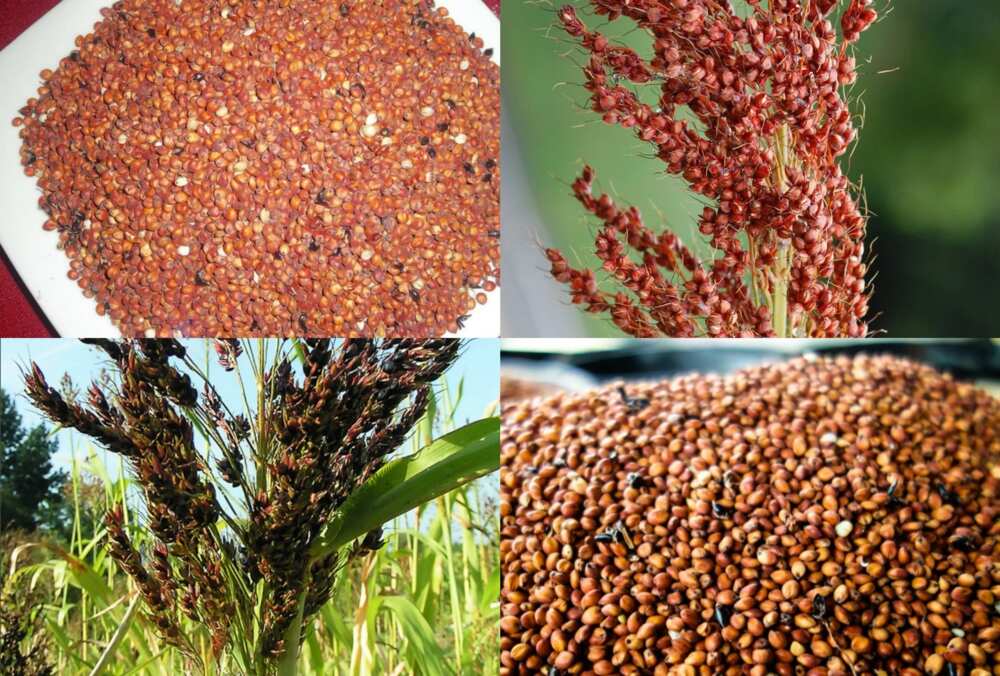Side effects of guinea corn vs benefits (positive and negative)
One of the most ancient cereals, guinea corn (sorghum), has been gaining a lot of popularity lately. Science discovered that most of our health problems especially the ones linked to extra weight and constant fatigue could be as a result of an allergy to gluten. As a result of this information, 'organic' grains have gained popularity. Many of them are gluten-free. Guinea corn has been prescribed by promoters of healthy nutrition around the world. Despite all the great benefits, there are also some side effects of guinea corn which you should know about.

Effect of guinea corn on the body: positive or negative?
Before we talk about all the harm that guinea corn can do to your body, let's remind ourselves of the positive effect of this product:
- Modern doctors explain that sorghum is one of the most useful cereals for humans mainly due to the lack of components that cause allergies, and simple carbohydrates that cause fluctuations in blood sugar levels.
- Unrefined sorghum is brewed a little longer than usual and it is recommended for people with diabetes.
- In addition, this product will meet your body's need for magnesium and zinc - very important minerals for anyone who want so maintain the health of their nervous system.
- In small quantities guinea corn contains calcium and sodium.
- Sorghum is a source of folic acid and it is useful for boosting fertility and also maintaining health during pregnancy.
- In addition, sorghum thiamine and riboflavin are vitamins that improve the state of retinal tissues leading to a prevention of night blindness, cataracts and glaucoma.
- Sorghum contains vitamin C which is responsible for the recovery processes in the human body and health of the immune system.
- In countries where sorghum is well spread (Indonesia, Africa, South America), the meals prepared from it is known to be good for babies.
- Sorghum meal is an excellent source of complex carbohydrates. Due to the fiber content you will stay fuller for longer which is helpful for people who want to lose weight.
Given all these facts, the question arises: can guinea corn cause any harm to the human body?
Harms of guinea corn
- We all have individual intolerance to even the most useful products. Due to its high fiber content, some people might suffer from gastrointestinal issues after eating guinea corn. Flatulence is a common symptom of this issue. However, this reaction is quite rare.
- High-fiber products (such as guinea corn) and meals from them are not recommended for people who are prone to or suffer from gastrointestinal diseases.
- There might be a problem if you suddenly switch from regular eating of rice to sorghum without giving your body a chance to adapt. This might lead to diarrhea or constipation.
- Be careful when it comes to children nutrition. Cereals with a large amount of dietary fiber are usually not suitable for the immature digestive system. Kids older than five years can begin taking a little amount of sorghum. But it is important to observe any reaction by the child.
- For breastfeeding mothers, it all depends on your diet. If you have been eating guinea corn regularly before pregnancy, by all means, continue. But experts advise again suddenly switching to sorghum diet during pregnancy.

How much guinea corn can you eat not to do harm to your body?
Naturally, you should not make guinea corn meal the whole basis of your diet, as 5-6 daily portions are too much. But 2-3 100-gram portions of different cereals per day will suit most people who are physically active and trying to lose weight.
Sorghum can be used in all the dishes that you are accustomed to cooking with brown or white rice. Ideal combination: sorghum plus protein or law-fart carb for easy digestion. Prepare dishes from sorghum without using butter. Use spices, seafood, vegetables and meat instead. So you'll enjoy a perfectly healthy and nutritious meal.
Here is the main rule that you should adhere to, so as not to harm the body: use sorghum moderately and take into account the characteristics of your own system. Your health is in your hands. You should plan your family food timetable very thoroughly, especially when it comes to the food for children. Make sure you are only reaping benefits when it comes to food.
DISCLAIMER: This article is intended for general informational purposes only and does not address individual circumstances. It is not a substitute for professional advice or help and should not be relied on to make decisions of any kind. Any action you take upon the information presented in this article is strictly at your own risk and responsibility!
Source: Legit.ng



